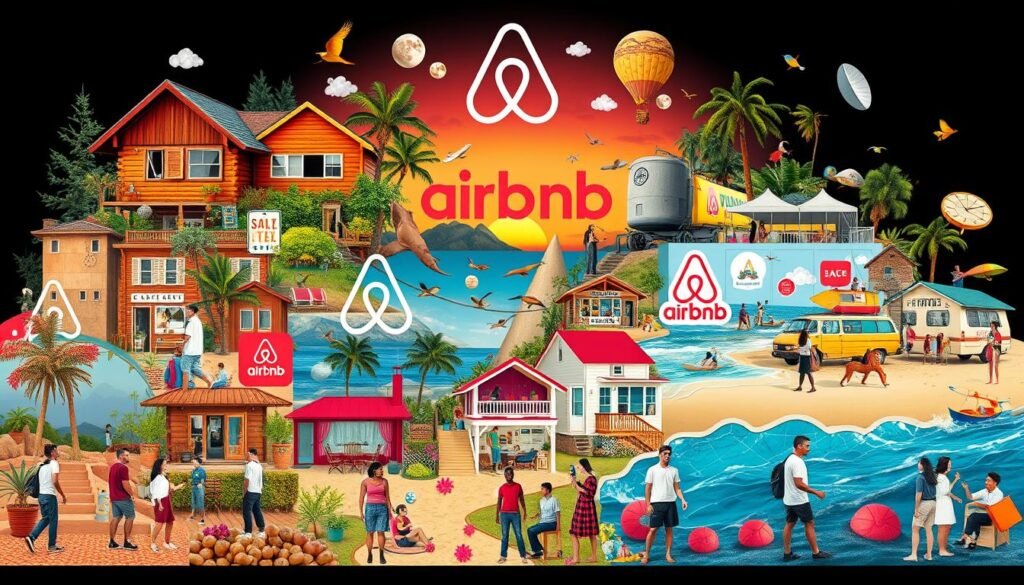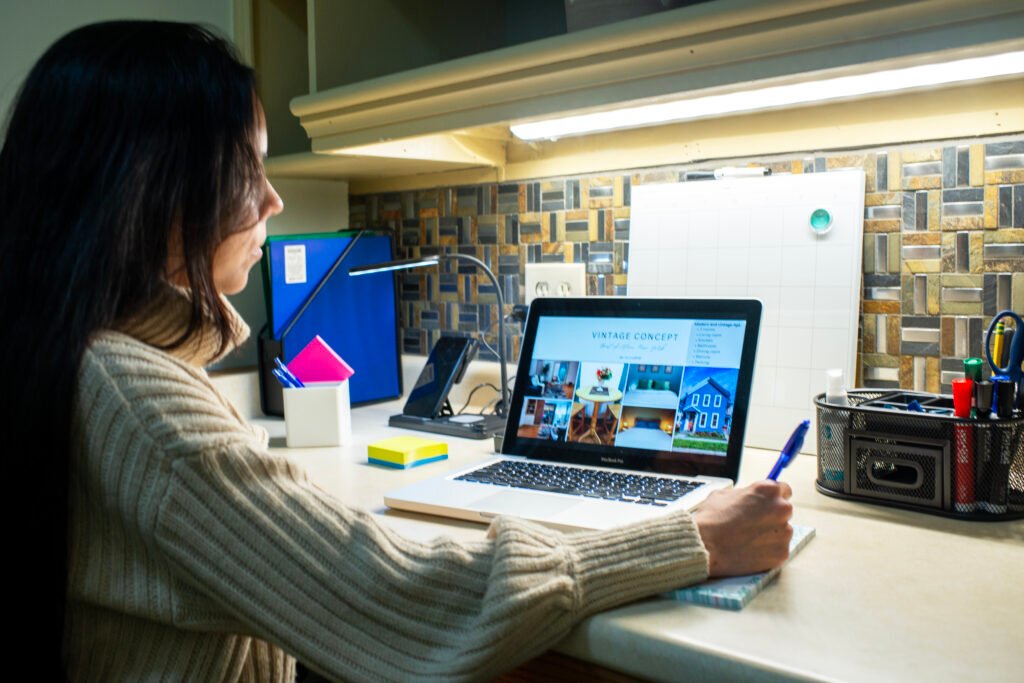The COVID-19 pandemic has brought about a profound shift in the travel industry, leaving Airbnb, the leading vacation rental platform, facing a new set of challenges and opportunities. As the world navigates the road to recovery, Airbnb must adapt its business model to meet the evolving needs and preferences of travelers in a post-pandemic landscape.
The travel industry’s recovery has been a topic of intense scrutiny, with the future of Airbnb’s operations and growth potential being at the forefront of industry discussions. Airbnb’s ability to overcome the short-term impacts of the pandemic and capitalize on long-term shifts in travel behaviors will be crucial in determining its position in the hospitality ecosystem.
This article examines the key challenges and opportunities facing Airbnb as it navigates the post-pandemic world. From understanding the impact of COVID-19 on the platform’s bookings and revenue to analyzing evolving consumer preferences, regulatory changes, and industry competition, we delve into the multifaceted landscape that Airbnb must traverse to secure its long-term success.
Key Takeaways
- Airbnb must adapt its business model to meet the evolving needs and preferences of travelers in a post-pandemic landscape.
- The platform’s ability to overcome short-term impacts and capitalize on long-term shifts in travel behaviors will be crucial for its future success.
- Airbnb faces a range of challenges, including regulatory changes, industry competition, and maintaining quality standards across its listings.
- Opportunities for Airbnb include leveraging technological innovations, tapping into emerging markets, and strengthening its community-driven approach.
- Flexibility, sustainability, and crisis preparedness will be key to Airbnb’s long-term resilience in the hospitality industry.
Understanding the Impact of COVID-19 on Airbnb
The COVID-19 pandemic has undoubtedly left a significant mark on the travel industry, and Airbnb has been no exception. As the world grappled with travel restrictions and lockdowns, the short-term effects on Airbnb’s bookings and revenue were immediate and profound.
Short-term effects on bookings and revenue
In the initial stages of the pandemic, Airbnb experienced a dramatic decline in bookings as travelers canceled their plans and stayed home. The company reported a 72% year-over-year drop in revenue for the second quarter of 2020, highlighting the immediate impact of the crisis on its business model.
Long-term shifts in travel behaviors
However, as the pandemic persisted, Airbnb began to witness a gradual recovery, driven by shifts in traveler behavior. The travel industry recovery has been accompanied by a greater emphasis on traveler behavior shifts, such as increased demand for domestic travel, remote work accommodations, and a heightened focus on cleanliness and safety measures.
These long-term changes in traveler preferences have presented both challenges and opportunities for Airbnb as it navigates the post-pandemic landscape. Understanding and adapting to these evolving consumer behaviors will be crucial for the company’s future success.
| Metric | Impact |
|---|---|
| Bookings | Declined by 72% in Q2 2020 compared to the previous year |
| Revenue | Declined by 72% in Q2 2020 compared to the previous year |
| Traveler Preferences | Increased demand for domestic travel, remote work accommodations, and enhanced cleanliness/safety measures |
“The pandemic has fundamentally changed the way people travel, and Airbnb must be agile to adapt to these new realities.”
Evolving Consumer Preferences Post-Pandemic
As the world navigates the post-pandemic landscape, Airbnb has witnessed a significant shift in consumer preferences. The COVID-19 crisis has dramatically altered travel behaviors, ushering in a new era of accommodations that cater to the evolving needs of guests.
Increased Demand for Remote Work Accommodations
The pandemic has catalyzed a surge in remote work, and Airbnb has responded by adapting its offerings to meet this growing demand. Travelers now seek out accommodations that can seamlessly integrate with their remote work lifestyle, prioritizing amenities like reliable high-speed internet, dedicated workspaces, and flexibility in extended stays.
Airbnb’s ability to provide these amenities has become a crucial differentiator, as the demand for remote work trends continues to rise in the post-pandemic world.
Focus on Cleanliness and Safety Measures
Cleanliness and safety have become paramount concerns for Airbnb guests in the wake of the pandemic. Travelers now expect enhanced cleaning protocols, contactless check-in and checkout processes, and transparent communication about sanitization measures across all Airbnb listings.
Airbnb has responded by implementing strict contactless hospitality guidelines, empowering hosts to adopt industry-leading cleanliness standards and providing tools to showcase their commitment to guest safety. This focus on health and hygiene has become a crucial factor in building guest confidence and loyalty.

“Airbnb’s ability to cater to the evolving needs of remote workers and prioritize cleanliness has become a key competitive advantage in the post-pandemic market.”
Regulatory Challenges for Airbnb
As Airbnb continues to disrupt the traditional hospitality industry, it has faced growing regulatory challenges from local governments. In recent years, many cities and municipalities have implemented new zoning laws and short-term rental regulations that directly impact Airbnb’s operations and its network of rental hosts.
Local Government Regulations and Zoning Laws
Across the globe, local authorities have sought to address concerns about the impact of short-term rentals on their communities. From limiting the number of days a property can be rented out to requiring specific permits or licenses, these new regulations have forced Airbnb and its hosts to navigate a complex patchwork of rules and restrictions.
- Some cities have banned short-term rentals entirely in certain neighborhoods or residential zones.
- Others have implemented registration systems, where hosts must provide detailed information about their properties and guests.
- Many local governments have also imposed taxes on short-term rental income, similar to hotel occupancy taxes.
Impact of Short-Term Rental Laws on Hosts
These evolving short-term rental regulations have had a significant impact on rental host concerns and Airbnb’s ability to operate effectively. Hosts must now carefully research and comply with the laws in their specific locations, or risk hefty fines or even the loss of their ability to list their properties on the platform.
| Regulation Type | Impact on Hosts |
|---|---|
| Permit/License Requirements | Increased administrative burden and costs for hosts |
| Occupancy Limits | Restricts the number of guests and potential rental income |
| Taxes on Rental Income | Reduces overall profitability for hosts |
As Airbnb and its hosts navigate this evolving regulatory landscape, it will be crucial for the company to work closely with local governments to find a balance between protecting community interests and allowing its short-term rental business to thrive.

Competition from Traditional Hotels
As the travel industry begins to recover from the COVID-19 pandemic, Airbnb faces growing competition from traditional hotel chains adapting to the changing landscape. While Airbnb’s unique business model has provided travelers with diverse accommodation options and local experiences, hotels are not sitting idly by. They are implementing innovative strategies to stay relevant and reclaim their share of the market.
How Hotels are Adapting to Compete
Many hotels have recognized the need to enhance their offerings to cater to the evolving preferences of post-pandemic travelers. Some have introduced flexible booking policies, allowing for easier cancellations and longer stays. Others have invested in contactless check-in and check-out solutions, addressing the increased demand for minimal human interaction. Additionally, hotels are placing a greater emphasis on cleanliness and safety protocols to reassure guests.
The Unique Advantages of Airbnb
Despite the hotels’ efforts, Airbnb maintains several advantages that continue to attract travelers. The platform’s diverse range of accommodations, from cozy apartments to luxurious homes, allows guests to tailor their experiences to their specific needs and preferences. Additionally, Airbnb’s focus on local experiences and connections with hosts provides a level of authenticity and personalization that many traditional hotels struggle to replicate.
As the travel industry recovery progresses, the competition between Airbnb and traditional hotels will undoubtedly intensify. However, Airbnb’s ability to adapt its business model adaptation and capitalize on its unique offerings may prove crucial in maintaining its position in the evolving hospitality landscape.

“Airbnb’s diverse range of accommodations and focus on local experiences give it a distinct advantage in the post-pandemic travel market.”
Technological Innovations Shaping the Future
As the hospitality industry continues to evolve, Airbnb has embraced technological advancements to enhance the guest experience. One key area of focus has been the implementation of contactless hospitality solutions, which have become increasingly crucial in a post-pandemic world.
Contactless Check-in/Out Solutions
Airbnb has rolled out a range of contactless check-in and check-out features, allowing guests to access their accommodations without the need for in-person interactions. This not only promotes contactless hospitality, but also streamlines the check-in process, saving time and providing a seamless arrival experience for guests.
Enhanced Customer Experience through AI
Airbnb has also leveraged the power of artificial intelligence (AI) to deliver a more personalized and intuitive customer experience. AI-driven algorithms analyze guest preferences and behaviors to provide tailored recommendations for activities, dining options, and other local experiences. This Airbnb business model adaptation has helped the platform better cater to the evolving needs and preferences of its diverse customer base.

By embracing these technological innovations, Airbnb has positioned itself to thrive in a post-pandemic world, where contactless hospitality and personalized experiences have become essential elements of the modern travel landscape. As the platform continues to evolve, these advancements will play a crucial role in shaping the future of the Airbnb experience.
Sustainability Trends in the Hospitality Sector
As the global landscape shifts towards more environmentally conscious practices, the hospitality industry, including Airbnb, is embracing the growing demand for sustainable tourism. Airbnb hosts are increasingly adopting eco-friendly initiatives to cater to the evolving preferences of modern travelers seeking sustainable travel options.
Eco-friendly Practices for Airbnb Hosts
Airbnb hosts are taking proactive steps to reduce their environmental impact and attract eco-conscious guests. From implementing energy-efficient appliances and using renewable energy sources to providing recycling facilities and promoting paperless operations, hosts are finding innovative ways to incorporate sustainability into their property management. Additionally, many hosts are educating their guests on sustainable practices, encouraging them to adopt greener habits during their stay.
Consumer Preference for Sustainable Travel
The shift in traveler behavior shifts has led to an increased demand for sustainable tourism experiences. Airbnb guests are now more inclined to choose accommodations that align with their environmental values, prioritizing factors such as energy efficiency, water conservation, and waste management. This trend is driving Airbnb to develop new initiatives and partnerships to promote sustainable practices across its platform, positioning the company as a leader in the eco-friendly hospitality landscape.
| Sustainable Practices | Benefits for Airbnb Hosts |
|---|---|
| Energy-efficient lighting and appliances | Reduced energy consumption and utility costs |
| Renewable energy sources (solar, wind, etc.) | Lower carbon footprint and potential tax incentives |
| Water-saving fixtures and irrigation systems | Decreased water usage and expenses |
| Eco-friendly cleaning products and waste management | Healthier living environment for guests and reduced environmental impact |
As the hospitality sector continues to evolve, Airbnb is well-positioned to capitalize on the growing sustainable tourism trend, attracting environmentally conscious travelers and setting new standards for responsible hosting in the shared accommodation industry.

“The future of travel is sustainable, and Airbnb is leading the charge by empowering hosts to embrace eco-friendly practices and provide guests with authentic, responsible experiences.”
Emerging Markets for Airbnb Growth
As the travel industry navigates the post-pandemic landscape, Airbnb is poised to capitalize on emerging markets that present exciting opportunities for growth. The company’s adaptability and innovative approach have positioned it to thrive in the face of evolving consumer preferences and shifting travel behaviors.
Opportunities in Rural and Suburban Areas
The pandemic has sparked a renewed interest in remote and less-crowded destinations, as travelers seek safe and socially distanced getaways. Airbnb has witnessed a surge in demand for accommodations in rural and suburban areas, catering to the growing preference for private, self-contained living spaces. These markets offer Airbnb hosts the chance to capitalize on the increased interest in unique, nature-inspired experiences, providing travelers with a respite from the confines of urban environments.
International Markets Recovering Post-COVID
With the gradual easing of travel restrictions and the rollout of vaccines, international markets are beginning to recover from the impact of the COVID-19 pandemic. Airbnb is well-positioned to expand its presence in these regions, as travelers regain confidence in cross-border trips. The company’s focus on curating local and authentic experiences resonates with global consumers seeking to immerse themselves in the culture and charm of diverse destinations. By tailoring its offerings to meet the evolving needs of international travelers, Airbnb can capitalize on the travel industry recovery and unlock new opportunities for growth.
| Region | Projected Growth | Key Factors |
|---|---|---|
| North America | 15% by 2024 | Domestic travel demand, suburban migration |
| Europe | 12% by 2023 | Easing of travel restrictions, pent-up demand |
| Asia-Pacific | 18% by 2025 | Economic recovery, growing middle class |
As Airbnb navigates the challenges and opportunities of the post-pandemic landscape, its ability to adapt and capitalize on emerging markets will be crucial in driving the company’s travel industry recovery and sustained growth.

The Role of Community in Airbnb's Strategy
Airbnb’s success has been largely driven by its strong community of hosts and guests. As the rental host concerns and Airbnb business model adaptation continue to evolve in a post-pandemic world, the company is placing a renewed emphasis on strengthening host-guest relationships and fostering a sense of community among its users.
Strengthening Host-Guest Relationships
Airbnb recognizes that its hosts are the backbone of the platform, and the company is working to provide them with more support and resources. This includes offering enhanced communication tools, streamlining the onboarding process, and providing personalized guidance on pricing, marketing, and managing their listings. By empowering hosts and addressing their concerns, Airbnb aims to enhance the overall guest experience and build stronger bonds between hosts and travelers.
Community Engagement Initiatives
Beyond the host-guest dynamic, Airbnb is also investing in community engagement initiatives to cultivate a sense of belonging and loyalty among its users. This includes organizing local events, fostering peer-to-peer support networks, and encouraging hosts to share their unique stories and experiences. By fostering a vibrant community, Airbnb hopes to create a more authentic and rewarding travel experience that sets it apart from traditional hotel chains.
As Airbnb navigates the challenges of the post-pandemic landscape, its ability to leverage its community-driven approach will be crucial in adapting its business model and maintaining its position as a leader in the short-term rental market.

Challenges in Maintaining Quality Standards
As Airbnb continues to grow and evolve in the post-pandemic landscape, ensuring consistent quality standards across its diverse range of listings has emerged as a key challenge for the company. With an increasingly diverse pool of hosts and ever-shifting traveler behavior shifts, Airbnb must strike a delicate balance between preserving host independence and upholding the high-quality guest experiences that have become synonymous with the Airbnb brand.
Consistency in Guest Experiences
One of the primary concerns for Airbnb is maintaining consistency in the guest experience across its vast network of listings. With hosts operating with varying degrees of professionalism and attention to detail, Airbnb must find ways to standardize essential elements like cleanliness, amenity provisioning, and overall hospitality. Addressing the common mistakes made by Airbnb will be crucial in this endeavor, as the company works to ensure that each guest enjoys a seamless and enjoyable stay, regardless of the specific listing they choose.
Balancing Host Independence and Oversight
Airbnb’s success has been built on the premise of empowering individual hosts to offer unique, locally-curated experiences. However, in the face of evolving rental host concerns and traveler behavior shifts, the company must find ways to maintain this flexibility while also strengthening its quality control mechanisms. This delicate balance will require innovative approaches, such as enhanced host training programs, streamlined communication channels, and data-driven performance monitoring to identify and address any inconsistencies or substandard offerings.
“The key to Airbnb’s continued success will lie in its ability to foster a culture of excellence among its hosts while respecting their individuality and autonomy.”
By addressing these challenges head-on, Airbnb can ensure that its platform remains a trusted and reliable choice for travelers seeking authentic, high-quality accommodations, even in the face of an ever-changing industry landscape.

Financial Strategies for Hosts and Airbnb
As the Airbnb business model navigates the challenges and opportunities of the post-pandemic world, a crucial focus has been on developing effective financial strategies for both hosts and the company itself. Airbnb has actively worked to support its network of hosts in adapting to the fluctuating market demands, while also investing in marketing and promotional efforts to drive growth and adapt its own business model.
Adapting to Fluctuating Market Demands
Airbnb hosts have faced significant uncertainty in recent months, with travel patterns and booking behaviors shifting rapidly. To help hosts navigate these changes, Airbnb has implemented various initiatives, including:
- Flexible cancellation policies to provide guests with more confidence in booking
- Revenue management tools to assist hosts in adjusting pricing based on demand
- Hosting community forums to share best practices and strategies for adapting to market changes
Investment in Marketing and Promotions
Recognizing the need to adapt its business model, Airbnb has also increased its investment in marketing and promotional efforts. This includes:
- Launching creative campaigns to target new demographic segments, such as remote workers and families seeking longer-term stays
- Leveraging social media and digital platforms to enhance brand awareness and reach new audiences
- Collaborating with local businesses and tourism boards to drive demand in emerging markets and non-urban destinations
By focusing on financial strategies that support both hosts and the Airbnb platform, the company aims to navigate the Airbnb business model adaptation, address the challenges posed by the pandemic, and seize the opportunities that emerge in the evolving travel landscape.

| Financial Strategy | Key Initiatives | Impact |
|---|---|---|
| Adapting to Fluctuating Market Demands |
| Helps hosts navigate uncertain conditions and adjust their offerings to meet evolving guest preferences |
| Investment in Marketing and Promotions |
| Enhances brand awareness, reaches new audiences, and drives demand in emerging markets and destinations |
The Future of Business Travel and Airbnb
As the travel industry recovery continues, businesses are reassessing their corporate travel policies in the post-pandemic landscape. Airbnb, the leading home-sharing platform, is well-positioned to capture a larger share of the evolving business travel market.
Corporate Travel Adaptations Post-Pandemic
The pandemic has fundamentally shifted the priorities of corporate travel decision-makers. With the rise of remote work trends, companies are now seeking more flexible and cost-effective accommodation options that cater to the needs of their distributed workforce. Airbnb’s diverse listings and personalized experiences align well with this emerging demand.
Airbnb's Role in Business Travel Recovery
Airbnb has actively embraced the changing business travel landscape, introducing tailored programs and partnerships to attract corporate clients. By offering amenities like remote work-friendly spaces, enhanced cleaning protocols, and dedicated support for business travelers, Airbnb is positioning itself as a preferred alternative to traditional hotel stays.
| Key Factors | Airbnb’s Advantage |
|---|---|
| Flexible Accommodations | Diverse listings cater to various team sizes and work styles |
| Remote Work Capabilities | Dedicated spaces and amenities for productive remote work |
| Cost-Effectiveness | Competitive pricing compared to traditional hotel rates |
As businesses continue to navigate the evolving travel industry recovery, Airbnb’s adaptability and focus on the unique needs of corporate travelers position the company as a vital partner in the future of business travel.

“Airbnb’s flexible accommodations and remote work-friendly features have become essential for our distributed team, allowing us to maintain productivity and collaboration while traveling for business.”
Marketing Strategies for a Changed Landscape
In the wake of the pandemic, Airbnb has had to reevaluate its marketing strategies to adapt to the evolving traveler behavior shifts and the changing landscape of the hospitality industry. The company’s ability to effectively reach and engage with new demographics will be crucial in maintaining its competitive edge and driving its business model adaptation.
Creative Campaigns Targeting New Demographics
Airbnb has recognized the need to expand its appeal beyond the traditional leisure traveler. The company is now focused on crafting innovative marketing campaigns that cater to emerging traveler segments, such as remote workers seeking long-term accommodations and families seeking safer, more spacious vacation rentals. By highlighting the versatility and unique features of its offerings, Airbnb aims to attract these new demographics and solidify its position as a go-to platform for diverse travel needs.
Leveraging Social Media for Brand Awareness
Social media has become an indispensable tool for Airbnb in the post-pandemic world. The company is leveraging platforms like Instagram, TikTok, and YouTube to showcase the experiences and lifestyles associated with its brand. By partnering with influential creators and amplifying user-generated content, Airbnb is building a strong online presence and fostering a sense of community among its target audience. This strategic approach not only boosts brand awareness but also helps to establish trust and credibility in the minds of potential guests.
| Marketing Strategies | Key Objectives | Potential Outcomes |
|---|---|---|
| Creative Campaigns Targeting New Demographics | Expand Airbnb’s appeal to remote workers, families, and other emerging traveler segments | Increased bookings, diversified customer base, and strengthened market position |
| Leveraging Social Media for Brand Awareness | Build a strong online presence, foster a sense of community, and establish trust with potential guests | Improved brand recognition, increased website traffic, and enhanced customer engagement |
By implementing these innovative marketing strategies, Airbnb aims to navigate the changed landscape and capitalize on the evolving traveler behavior shifts, ultimately strengthening its position as a leading player in the vacation rental industry.

Partnerships and Collaborations
In the ever-evolving landscape of the hospitality industry, Airbnb has recognized the power of strategic partnerships and collaborations to enhance its service offerings and expand its reach. By forging relationships with local businesses and industry players, the company is poised to navigate the challenges and seize the opportunities presented by the post-pandemic era.
Collaborations with Local Businesses: Enriching the Guest Experience
Airbnb has long been praised for its ability to connect travelers with unique, localized experiences. To further strengthen this aspect of its business, the company has sought out partnerships with small and medium-sized enterprises in its host destinations. These collaborations allow Airbnb guests to access exclusive offerings, such as guided tours, gourmet dining experiences, and artisanal workshops, that showcase the vibrant culture and sustainable tourism initiatives of the local community.
Strategic Alliances: Strengthening Airbnb's Competitive Edge
Recognizing the need to adapt to evolving challenges and opportunities in the hospitality sector, Airbnb has also pursued strategic alliances with traditional hotel chains and other travel industry players. These partnerships have allowed the company to leverage complementary strengths, such as enhanced customer service, loyalty programs, and logistics capabilities, to provide a more seamless and compelling guest experience.
By fostering these collaborative relationships, Airbnb is better positioned to navigate the complexities of the post-pandemic travel landscape, offering travelers a diversified portfolio of accommodations and experiences that cater to their evolving preferences and demands.

The Importance of Flexibility in Travel Offerings
In the post-pandemic era, the travel industry has witnessed a significant shift in traveler behavior. Consumers are now seeking more flexibility and adaptability in their travel plans, driven by the uncertainties and disruptions caused by the global health crisis. Airbnb, the leading short-term rental platform, has recognized this evolving trend and is taking steps to address the changing rental host concerns.
Adapting Booking Policies to Consumer Needs
Airbnb has been proactive in adapting its booking policies to better suit the needs of modern travelers. The platform has introduced more flexible cancellation options, allowing guests to cancel their reservations with minimal or no penalties, particularly in the event of unforeseen circumstances. This shift in policy has been well-received by travelers, as it provides them with a greater sense of security and peace of mind when planning their trips.
Emphasizing Long-term Stays and Flexible Cancellations
Alongside the flexible cancellation policies, Airbnb has also placed a greater emphasis on catering to the growing demand for long-term stays. The platform has seen a surge in the number of travelers seeking accommodations for extended periods, whether for remote work, staycations, or extended vacations. In response, Airbnb has streamlined its booking process and introduced tailored pricing and amenities to cater to this segment of the market.
By offering flexible booking options and catering to the needs of long-term travelers, Airbnb is positioning itself as a preferred choice for those seeking a more adaptable and personalized travel experience. This strategy not only benefits the travelers but also supports the rental host concerns of maintaining occupancy and generating consistent income during uncertain times.

“The ability to adapt and respond to evolving consumer preferences is crucial for Airbnb’s continued success in the post-pandemic travel landscape.”
As the travel industry continues to evolve, Airbnb’s commitment to flexibility and adaptability will be a key factor in its ability to navigate the changing landscape and meet the growing demands of both travelers and hosts.
Preparing for Future Pandemics
As the world grapples with the ongoing impact of the COVID-19 pandemic, Airbnb is taking proactive steps to prepare for potential future health crises. The company’s focus on contactless hospitality and robust crisis management plans aims to equip both hosts and guests with the tools and strategies needed to navigate future challenges and opportunities.
Health and Safety Innovations for Hosts
Airbnb has introduced a comprehensive set of health and safety protocols for hosts, ensuring that their properties adhere to the highest standards of cleanliness and sanitization. From implementing contactless check-in and check-out procedures to providing guidance on enhanced cleaning practices, Airbnb is empowering its host community to offer a safe and contactless hospitality experience to guests.
Additionally, the company has invested in cutting-edge technologies, such as self-cleaning surfaces and advanced air purification systems, to help hosts create healthier and more secure living environments. These innovations not only address the immediate challenges and opportunities posed by the pandemic but also lay the foundation for a more resilient hospitality industry in the face of future health crises.
Crisis Management Plans for Airbnb and Hosts
Recognizing the importance of preparedness, Airbnb has developed comprehensive crisis management plans to support both the company and its host community. These plans include clear communication strategies, streamlined booking policies, and flexible cancellation options to help hosts and guests navigate disruptions with minimal impact.
Moreover, Airbnb has invested in training and resources to equip hosts with the knowledge and skills necessary to respond effectively to emergencies. From emergency preparedness workshops to real-time support during crises, Airbnb is committed to building a resilient network of hosts capable of adapting to the challenges and opportunities that may arise in the future.

By embracing contactless hospitality solutions and developing robust crisis management strategies, Airbnb is positioning itself and its host community to navigate the complexities of the post-pandemic landscape and emerge stronger in the face of future health-related disruptions. As the hospitality industry evolves, Airbnb’s proactive approach serves as a model for the industry, demonstrating the importance of adaptability and foresight in uncertain times.
Conclusion: Navigating Challenges and Embracing Opportunities
As the travel industry navigates the post-pandemic landscape, Airbnb has demonstrated its resilience and adaptability. While facing regulatory hurdles and increased competition, the platform has embraced technological innovations and shifting consumer preferences to position itself for future growth.
Key Takeaways for Hosts and Investors
Airbnb hosts and investors must be prepared to adapt to the evolving market dynamics. Maintaining consistent quality standards, investing in marketing and promotions, and leveraging data-driven insights will be crucial to success. Embracing sustainable practices and strengthening community ties can also help hosts stand out in a crowded marketplace.
Future Outlook for the Airbnb Business Model
The Airbnb business model has the potential to thrive in the years ahead, with the platform well-positioned to capitalize on the increased demand for remote work accommodations, long-term stays, and flexible travel options. By forging strategic partnerships, expanding into emerging markets, and prioritizing health and safety innovations, Airbnb can continue to lead the way in the short-term rental industry and provide travelers with unique and memorable experiences.
FAQ
What are the immediate and long-term effects of the COVID-19 pandemic on Airbnb’s operations?
The COVID-19 pandemic had a significant impact on Airbnb’s operations, initially resulting in a drop in bookings and revenue. However, over time, the company has observed long-term shifts in traveler behaviors, including an increased focus on cleanliness, flexibility, and domestic travel.
How are consumer preferences changing in the post-pandemic travel industry?
Consumers are exhibiting an increased demand for accommodations suitable for remote work and extended stays. There is also a stronger emphasis on cleanliness protocols and contactless hospitality solutions to ensure guest safety.
What are the key regulatory challenges facing Airbnb in various jurisdictions?
Local governments are implementing new zoning laws and restrictions on short-term rentals, which is impacting Airbnb’s operations and affecting its host community. Navigating these evolving regulations is a significant challenge for the platform.
How are traditional hotels adapting to compete with Airbnb in the post-pandemic market?
Traditional hotels are innovating to compete with short-term rentals, such as by offering more flexible booking policies and enhancing their cleaning and safety measures. Airbnb’s unique advantages, like diverse accommodation options and local experiences, continue to set it apart from the competition.
What technological innovations is Airbnb adopting to enhance the guest experience?
Airbnb is implementing contactless solutions for check-in and check-out processes, as well as integrating AI to provide personalized recommendations and improve customer service.
How is Airbnb addressing sustainability trends in the hospitality sector?
Airbnb is promoting eco-friendly practices among its host community and aligning its initiatives with the growing consumer preference for sustainable travel options. The platform is working to position itself as a leader in responsible tourism.
What are the emerging growth opportunities for Airbnb in the post-pandemic landscape?
Airbnb is seeing increased interest in rural and suburban destinations, as well as signs of recovery in international markets. The platform is exploring these areas for potential growth and expansion.
How is Airbnb leveraging its community to drive its strategy?
Airbnb is focused on strengthening the relationships between hosts and guests, and implementing community engagement initiatives to foster loyalty and trust within its ecosystem.
What challenges does Airbnb face in maintaining quality standards across its diverse listings?
Ensuring consistent guest experiences and balancing host independence with platform oversight are key challenges for Airbnb. The company is addressing these issues to address traveler concerns about cleanliness and safety.
How are Airbnb and its hosts adapting to fluctuating market demands?
Airbnb and its hosts are employing various financial strategies, such as dynamic pricing, revenue management techniques, and increased marketing investments, to navigate the uncertainties in the market.
How is the business travel landscape evolving, and what role does Airbnb play in its recovery?
Corporate travel policies are changing, presenting new opportunities for Airbnb. The platform is strategizing to capture a larger share of the business travel market, leveraging the increased demand for flexible accommodation options.
What marketing strategies is Airbnb using to reach new demographics in the post-pandemic world?
Airbnb is launching creative marketing campaigns to target emerging traveler segments, while also leveraging social media and influencer partnerships to build brand awareness and trust.
How is Airbnb partnering with local businesses and other industry players to enhance the guest experience?
Airbnb is collaborating with local businesses to offer unique experiences for guests and forming strategic alliances with other travel industry players to strengthen its market position and service offerings.
Why is flexibility in travel offerings becoming more important, and how is Airbnb adapting to this trend?
Consumers are increasingly seeking more flexible booking policies, including longer-term stays and flexible cancellation options. Airbnb is adjusting its offerings to accommodate these changing consumer needs, though this also impacts its host community.
How is Airbnb preparing for potential future health crises?
Airbnb is investing in health and safety innovations for hosts, as well as developing crisis management plans to help its host community build resilience against future disruptions. These efforts aim to ensure the platform is better equipped to navigate potential future pandemics.



